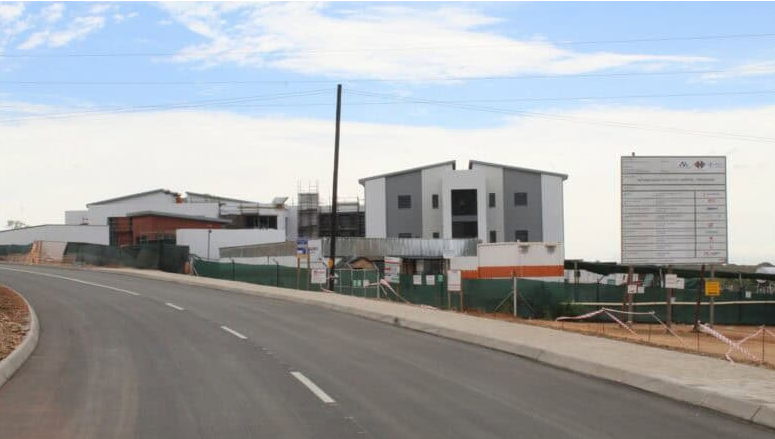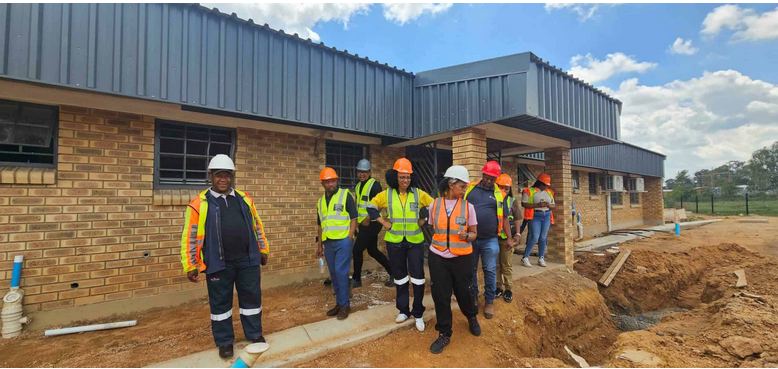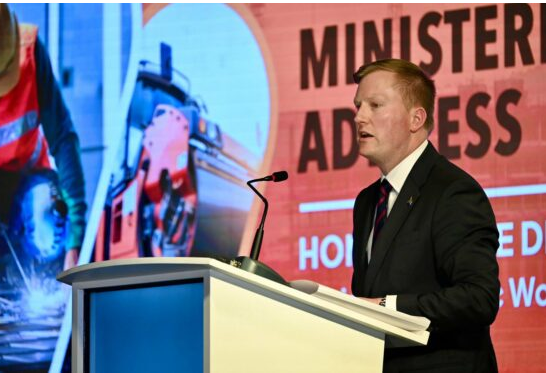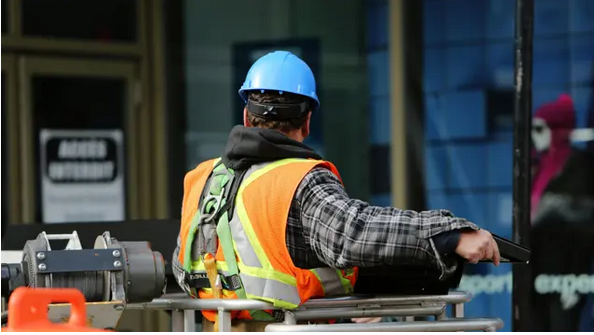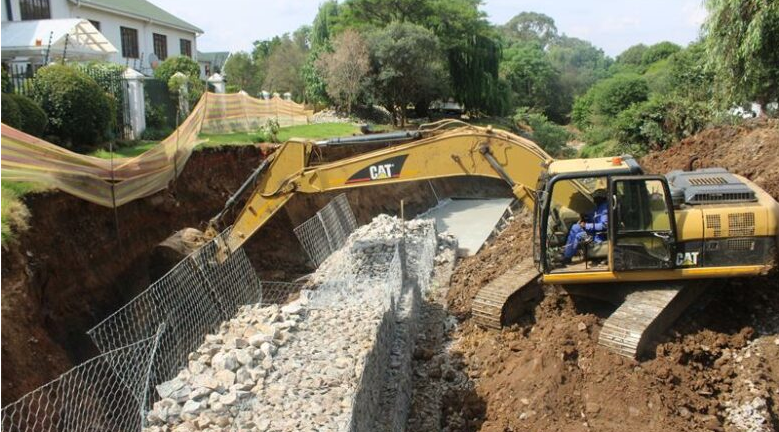Day of reckoning coming for non-performing construction contractors

Advertising
17-11-2025
Read : 6 times
Moneyweb
Source
They will be blacklisted from doing work on government projects.
Government is taking a decisive step towards holding construction contractors accountable, including the blacklisting of non-performing contractors and professionals.
Minister of Public Works and Infrastructure Dean Macpherson said professionalisation programmes are being drafted and enforcement will take place “through restriction committees” that will soon be established across all spheres of government and in all provinces.
Read: Is the ‘construction mafia’ battle being won? [Nov 2025]
This is one of several measures adopted by the public and private sector through the 2025 National Construction Summit Declaration on Friday.
Construction Industry Development Board (CIDB) CEO Bongani Dladla said the number of projects that are incomplete and delayed is a challenge – and that it emerged during a CIDB analysis with the Auditor-General that as many as 70% of public projects are not considered successful in that they were delayed or had significant overruns or there were compromises around quality.
High time
It is unclear why the Central Supplier Database at National Treasury, which allows for blacklisting of suppliers, has not been able to deal with this problem.
Macpherson in September said the decision by the CIDB to blacklist 40 contractors from doing business with the department and its entities since June 2024 represented a dramatic turnaround; from 2002, only one had been blacklisted.
That situation was “completely unacceptable” and “undermined trust in the state’s ability to act decisively”.
“This is why we are turning over a new leaf by restoring accountability, cleaning up the industry, and ensuring public money delivers quality infrastructure that communities can rely on.”
He said blacklisting sends a clear signal the department is serious and means these contractors are prohibited from bidding for tenders or being awarded work by the department.
The department is refining its processes to ensure that blacklisting happens more swiftly, and to recover money from contractors to safeguard public funds.
No more acting with impunity
Speaking shortly ahead of the summit, Macpherson said the first action of the South African Construction Action Plan (Sacap), which was endorsed by the summit on Friday, is accountability.
Underperforming contractors have for too long operated with impunity, he added, noting that they fail on one site only to resurface in another province under a new name or company number. “That will come to an end.”
Macpherson said all national and provincial departments will establish “restriction committees” to work with the CIDB in identifying and blacklisting defaulting contractors.
These committees will compile and submit lists of non-performing companies to prevent repeat offenders from securing new state contracts, with this database then used to reference those who have been blacklisted.
“If you have failed the state once, you will not be given a second chance to waste public funds,” he said.
“This is not about punishment for its own sake – it’s about restoring integrity,” he said, adding that accountability will be built into every level of the system, from project site to boardroom.
Macpherson said delegates were leaving the summit with a set of concrete, actionable and jointly owned resolutions that will shape the next phase of the sector’s recovery and growth.
He described the declaration as a unified commitment to accelerate delivery, strengthen accountability and turbocharge SA’s construction industry.
“The industry is better today than it was a year ago,” he added.
“That momentum that we have started building over the past year, from stabilising sites to finalising the Sacap to seeing the creation of over 130 000 new jobs in the third quarter is real and measurable.”
Each of the commitments in the declaration speaks to the problems delegates raised and the solutions that were crafted on Friday, and each “will form part of our collective agenda as we move from the summit to a phase of implementation now”.
Other key elements of the declaration:
- Publishing a unified performance improvement framework by June 2026 to monitor and report on performance across contractors, professional service providers, and infrastructure clients.
- Accelerating the B.U.I.L.D Programme, including training 1 000 contractors on construction management systems and 3 000 beneficiaries through the Skills Development Standard in 2026.
- Implementing the integrated social facilitation framework to address site disruptions and strengthen community partnerships.
- Enhancing sustainability and innovation through a national building information modelling framework, digitalisation of project management processes, and updated building codes and procurement policies.
- Centralising legislation and regulation governing the built environment under the Department of Public Works and Infrastructure.
- Rolling out Sacap reforms such as digital dashboards, procurement war rooms, improved audit outcomes, and ring-fenced project budgets to prevent delays and cost overruns.
Macpherson said the adoption of the declaration represents one of the most significant steps taken in recent years to rebuild South Africa’s construction capacity and restore confidence in public-sector infrastructure delivery.
It will help restore confidence in the industry and support further investment and job growth as they work towards “turning South Africa into a construction site”.
Recent News
Here are recent news articles from the Building and Construction Industry.
Have you signed up for your free copy yet?
